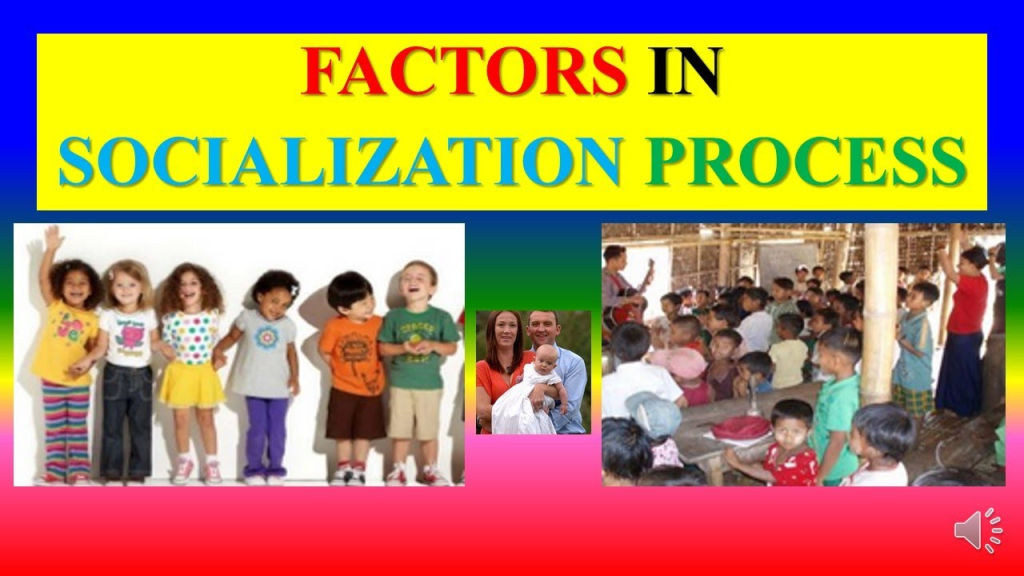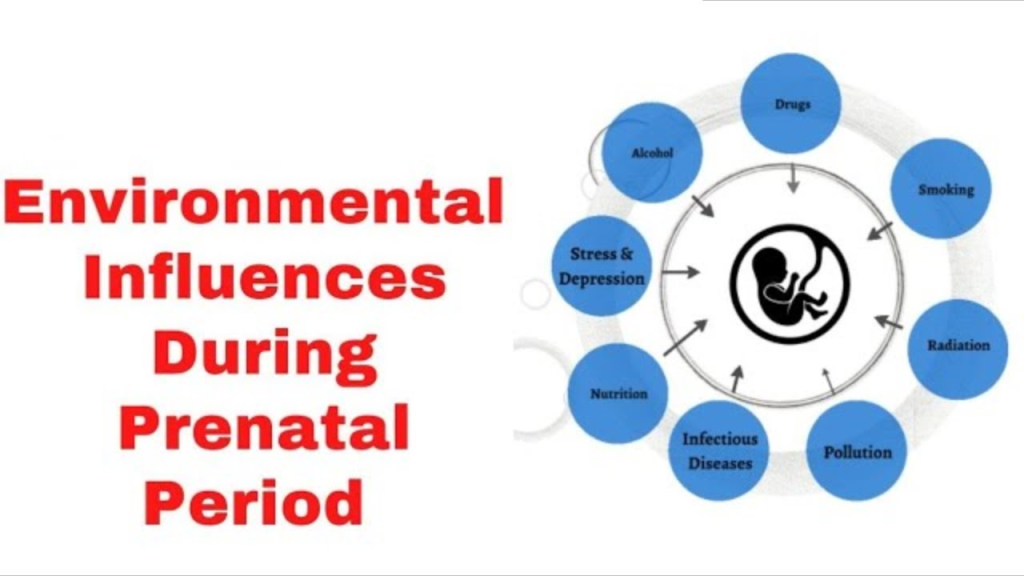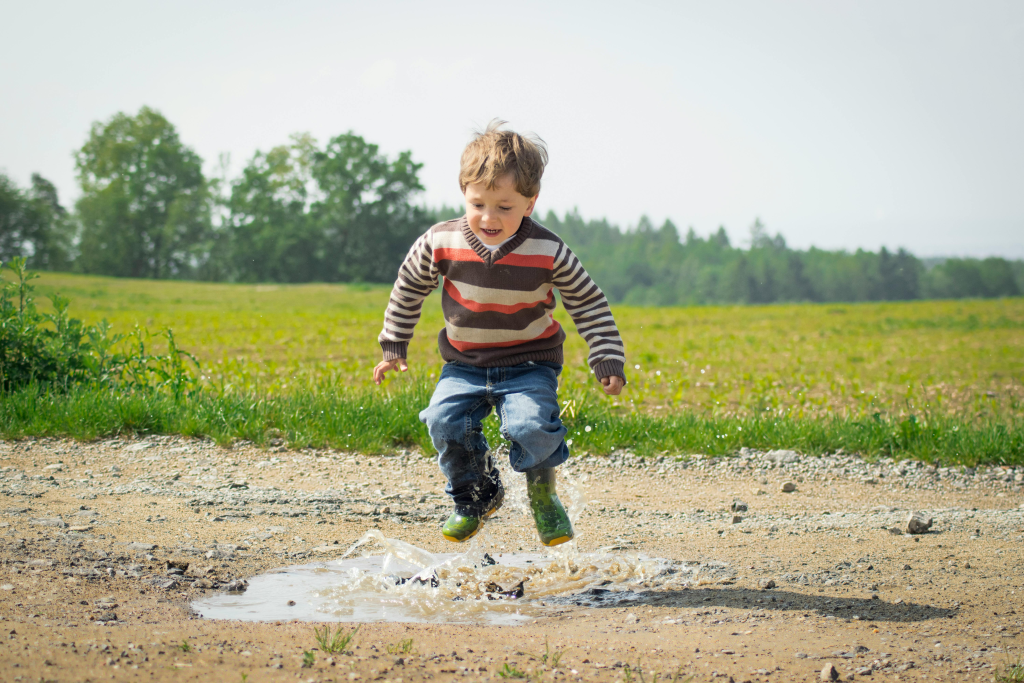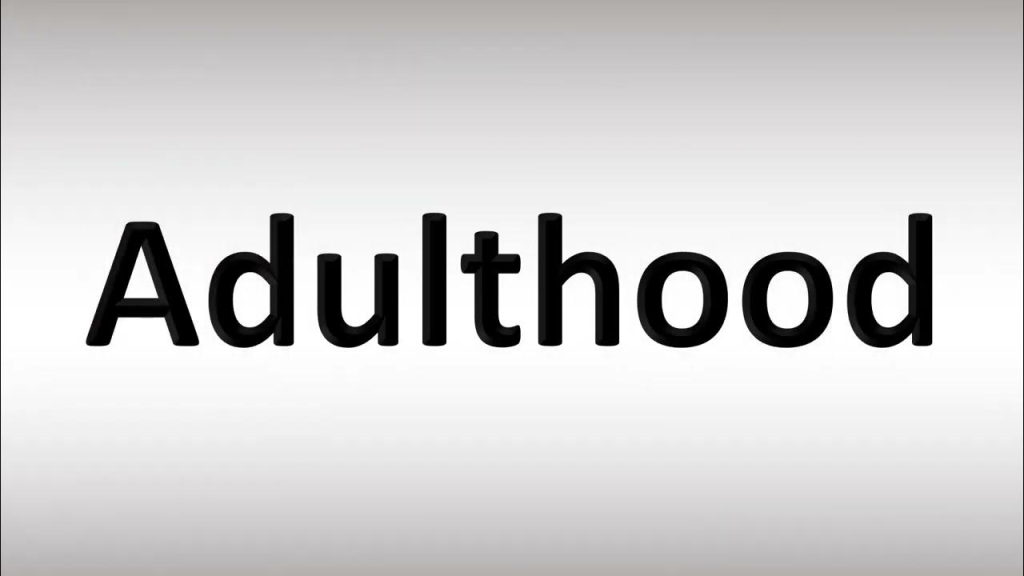ENGLISH-SOCIOLOGY UNIT 2
THE INDIVIDUAL:

Review of Human Growth and Development:

1.Meaning and Definition (Meaning and Definition):

Growth (Growth): Physical growth in the body, such as height, weight, teeth, etc.
Development: The development of qualitative aspects of personality, such as intelligence, emotions, sociability. Both processes are related but not identical.
2. Elements of Human Development:

1.Physical Development: Development of body organs, height, weight, teeth, etc.
2.Cognitive Development : Thinking ability, attention, memory, language and learning ability.
3.Emotional Development: Identifying and controlling one’s own and others’ emotions.
4.Social Development: Building relationships, friendships, teaching social behavior.
5. Moral Development: The ability to differentiate between good and evil and make appropriate moral decisions.
3. Stages of Human Development:

1.Prenatal Stage: Development of the main organs of the body during pregnancy.
2.Infancy Period: 0–1 years: Mother bonding, onset of language, rapid physical growth.
3.Early Childhood (Early Childhood: 2–6 years): Motor skills and language development, identity formation.
4.Middle Childhood (Middle Childhood: 6–12 years): School education, socialization, emotional regulation.
5.Adolescence (Adolescence: 12–18 years) : Development of secondary sexual characteristics, self-identification and self-confidence.
6.Early Adulthood (Early Adulthood: 18–40 years) : Career, marriage, responsibility, independence.
7.Middle Adulthood (Middle Adulthood: 40–65 years) :Stability, life evaluation, generational guidance.
8. Late Adulthood: 65+ years: Retirement, peace, life experience and evaluation.
4. Principles of Development:
- Development is sequential.
- Development is continuous.
- Physical and mental development are interrelated.
- Each child develops systematically differently.
- The surrounding environment affects development.
5. Major Theories of Development and Theorists):
1.Jean Piaget : Cognitive Development Theory:
Four stages: Sensorimotor, Preoperational, Concrete Operational, Formal Operational.
2.Erik Erikson : Psychosocial Theory
Each There is a Psychosocial Conflict at the stage.
Example: Trust vs Mistrust, Identity vs Role Confusion.
3.Sigmund Freud : Psychosexual Theory
Stages: Oral, Anal, Phallic, Latency, Genital.
Importance of libido in development.
4.Lev Vygotsky : Socio-Cultural Theory
Language and social environment are key to development.
An important part of the Zone of Proximal Development (ZPD).
5.Albert Bandura : Social Learning Theory
Observation and modeling Learning through.
Proven through the Bobo Doll experiment.
6.Factors Affecting Development:
1.Biological Factors:Ancestry, Genes, Nutrition, Health.
2. Psychological Factors : Intelligence, Emotions, Self-esteem.
3. Social Factors : Family, Friends, Education.
4.Economic Factors : Income, Living Conditions, Medical facilities.
7. Importance of Human Growth & Development:
- Becomes a guide for the overall development of the child.
- Provides educational and practical understanding for teachers.
- Gives direction to parents for parenting.
- Useful in policy making, health and education.
- Supports understanding of individual behavior and needs.
THE SOCIALIZATION PROCESS (Process of socialization and individualization. ):–

➡️Human being comes as a biological animal and wants to fulfill his needs.
➡️He is gradually formed as a social animal and learns the ways and means of living in society and according to that feelings are formed in him
➡️Without this process or without formation, man cannot sustain himself in this environment and in the world. If a person wants to live a good life, he has to follow the policies, rules, culture of the society and the process of this formation is called socialization
Different The definitions of different socialization given by sociologists are as follows.

Bogards has said that “Socialization is a process of working together by which we can create a sense of responsibility in a group and guide others. For his welfare and can fulfill his needs” .
According to Ogburn:- ” socialization is the process by which an individual learns the rules of living in society and lives in its group.”
According to Ross:- ” the development and growth of the sense of belonging which increases the ability to live and work together”.
Socialization is the process by which people living in society form relationships with each other. Socialization is a complex process in which a person interacts through habits, skills, beliefs and standard judgments and participates in social groups and communities.
➡️This is done by keeping in mind the quality of society
➡️ Socialization is a process by which skills and behavior are developed within a person and due to this, society runs in a certain manner
➡️The process of socialization starts before the birth of a child
Certain types of social circumstances have already decided what the life of the child will be like after birth and the situation that exists after his birth is the situation that helps in the development of society and its impact on his prenatal care and parental care.
Some of the things that help a child socialize after birth are as follows
1. Reflex:-
➡️Reflex sets a kind of limit e.g. T:- When the taste of sugar comes into the mouth, saliva is secreted from the salivary gland.
2. Instincts:-
➡️ According to Trotter, “Man’s behavior is according to his inner instinct”.
And according to McDougall, “Behavior can be called instinctive only if it has arisen from an urge or desire and in which there is some sensation for the outside world and it also depends to some extent on the inherited structure and for that reason the characteristics of that species are often adapted everywhere and have the ability to do so.
3. Urge:-
➡️A dynamic force behind behavior is the starting point of socialization and provides the basis for human behavior.
4. Capacity:-
➡️ Every person is born with some capacity and as a person learns new things, that capacity increases.
Factors of process of socialization (factor of process of socialisation):-

1. Imitation (Imitation ):- Imitation is copying someone’s action or behavior. This copying is done consciously or unconsciously and is an important factor for socialization.
Eg. :- A daughter wants to be like her mother or be like her mother and a male child wants to be like his father and the child also learns language from his family.
2. Suggestion (Suggestion) :- Suggestion is a way of communication in which information is given without any self-evidence. Suggestion language, picture etc. is given in turn, suggestion helps to change one’s own behavior and that of others as well. Education is the use of suggestion It helps people accept ideas and fulfill their wishes.
External and internal are two factors that affect suggestions, which are as follows:-
▫️external conditions:- group situation, prestige of the person, public opinion
▫️internal conditions:- temperament, intellectual ability, emotional excitement, and ignorance
3.Identification:-
➡️ As the child grows up, he becomes aware of the nature of things and he recognizes all these things and because of this he becomes socialized. Like he plays with toys and recognizes them
4.Language:-
➡️ Language transmits culture and helps in building personality and allows the individual to live in society
AGENCIES OF SOCIALIZATION:

➡️ Socialization is a process that begins at the birth of each person and continues until death. Socialization is an important matter for society. The process of socialization cannot be avoided but can be controlled through institutional channels.
Socialization helps the child to become a member of the society and gives social maturity which occurs through two sources.
▫️First source
➡️ This includes people who have power over others. For example, teachers, parents, grandparents.
▫️ Second source
➡️ This includes people who have equal power with each other. For example, friends, playmates, people who work together.
The process of socialization requires an egalitarian process along with an authoritarian process. When a child is born, his parents are his authoritarians, then when he goes to school, he has teachers and principals who are older than him, who are superior to him, who teach him something that makes him a good person. Along with this, egalitarian means friends of the same age, whom he is not afraid of, his study friends, playmates, siblings with whom he shares all his things.
➡️ That is why both authoritarian and egalitarian are necessary for the process of socialization.
Chief Agencies:
1 – Family
2- School
3- Playmates
4- Religion
5 – State
1 – Family
➡️ Family members are closely associated with the child. They are the first step that socializes the child. The child learns language, speech, gestures, cooperation, tolerance, love, sacrifice from his family. The family environment influences the growth of the child. In a bad family, a child learns bad habits, and in a good family, a child learns good habits.
2- School
➡️ A child receives education from school which instills good ideals and attitudes in him. Good education makes a child a good citizen of the country and bad, inadequate education leads a child to become a criminal.
3- Playmates
➡️ A child learns a lot from his friends which cannot be learned from his parents. He learns cooperation, morality, fashion etc. which are necessary from a social point of view.
4- Religion
➡️ In every religion, certain activities related to religion are performed on certain occasions. Due to these religious activities, belief and way of life develop in him. He receives teachings in religious places and from them his life is shaped.
5 – State
➡️ Every state makes laws for the people which help in shaping their behavior. If a person goes against the laws of the state, he is punished.
Elements of the Process of Socialization:

A child learns the process of socialization by coming into contact with social stimuli. The first and earliest social stimulus for him is his mother. After that, he comes into contact with more and more others. He comes into contact with father, brother, sister, playmates, teacher, police and other people who help in his formation.
Elements of Socialization (Elements of Socialization) :

➡️Personal heritage – physical and Psychological.
➡️ Environment – Family, Community, Society.
➡️ Culture – A child understands his culture through his family.
➡️ Personal Experience – Every person matures when he experiences and learns from his family, community, and society.
ENVIRONMENTAL FACTORS THAT INFLUENCE PRENATAL DEVELOPMENT:

Health Status of Mother:
The mother’s diet, lifestyle and prenatal care are very important for the health status of the mother. Early and regular medical check-ups with an obstetrician are essential. Regular blood pressure, weight, urine analysis, and information about pregnancy and position and development of the baby should be checked.
Good Nutrition:
A healthy pregnancy develops by consuming good nutrients. It is necessary to consume enough protein, calcium, iron, and vitamins. Insufficient food and nutrients slow down the development of the baby. The risks of delivery and low birth weight increase. Alcohol and smoking should be avoided and no self-medication should be taken except as prescribed by the doctor.
Proper medical care:
Proper medical care can help identify, prevent and treat problems caused by pregnancy.
Toxemias of Pregnancy (Toxemias of Pregnancy) Pregnancy):
Toxemias of pregnancy are complications that occur during pregnancy in which damage is seen to the liver, kidneys and other organs. Blood pressure, protein urea and the amount of water in the body suddenly increase. For example: After 20 weeks, swelling (swelling) is seen in the ED.
Congenital malformation:
Congenital malformations are seen due to many medications, poor eating habits, and infections. For example: Rubella infection during pregnancy or any genetic reasons may also be involved.
Ultrasound and amniocentesis:
Ultrasound is sonography and amniocentesis is taking a sample of amniotic fluid and sending it for testing. It can identify congenital defects.
Antirhesus vaccine:
If the mother’s blood group is RH negative and the baby’s blood group is RH positive, then the mother is given an Anti D injection immediately after the baby’s birth. This can prevent damage to red blood cells and complications like Rh incompatibility.
Premature Baby:
If the baby is delivered before 37 weeks and weighs less than 2.5 kilograms, it is called a premature baby. If signs of early labor are seen and the mother is at risk, a monitoring device should be placed around the mother’s waist. The mother should be taken to the hospital immediately and given medication to prevent labor.
Stages of Socialization:

1. Birth of new born baby:

- The baby comes out when contractions occur in the uterus. Then the mucus is removed from the baby’s mouth by suction.
- Immediately after birth, the baby cries and the breathing process begins. The umbilical cord is cut and clamped. It remains for a few days and then falls off. If normal vaginal delivery of the baby is not possible, then a cesarean section is performed.
- During the postpartum period (the time from the birth of the baby to 6 weeks), the mother’s organs return to their pre-pregnancy state. During this time, many hormonal changes occur and breast milk is secreted from the breasts.
- A baby who drinks breast milk is less likely to develop respiratory infections, skin disorders, constipation and diarrhea and also gains weight well.
2. INFANT:

- The period from the birth of a child to one year is called the infant period. During this time, the child grows rapidly, teeth develop, and coordination of the muscular and nervous systems is seen in which he tries to sit, stand, and hold onto anything.
3. CHILDHOOD :

- The period from the end of the infant period to the start of puberty Childhood is called this. During this time, the child develops physical growth, bowel and bladder control, and communication skills such as writing and speaking.
- As the child comes into contact with people who love and care for him, he develops acceptance, worth, and self-esteem.
- Self-esteem develops later in him. Many children show responsibilities for their own care and many also show it towards their family. For example: putting away their toys, making their bed or cleaning their table when they are able.
- Decision making (the ability to make their own decisions) develops in a child during childhood. The child learns to make their own decisions. For example: What will I wear today? Decisions are not always responsible and require parental guidance. The child develops a sense of work, reading and completing tasks, during which the child begins to understand many complex things in the world.
4. ADOLESCENCE (Adolescence) :

Adolescence is the period between infancy and adulthood, generally involving people aged 12 – 19. During this time, girls (11-13 years) experience earlier and faster growth than boys (13-15 years) and develop secondary sex characteristics. During this time, they seek more independence from their parents and spend more time with their friends and peer group. Most adolescents share and agree with their parents on their ideas and values.
➡️ According to parents, a healthy adolescent can be formed when….
- Developing the child’s ability to work independently, making him feel safe and preparing him to behave in a disciplined manner from the beginning.
- Staying in touch with the child. Such as; Show interest in the activities the child does for his development and give him confidence and consent to do anything.
5. ADULTHOOD:

- After adolescence, the period of adulthood begins. During this time, not much physical change is seen. If daily exercise is done during this time and a healthy lifestyle is maintained, one can remain fit in old age.
- ➡️ Early adulthood – During this time, they are independent and know their responsibility and build close relationships with others.
- ➡️Middle adulthood – During this time, they set life goals and determine their standards. For example, quitting a job that is not fulfilling and moving on to something new.
- ➡️Late adulthood – This is the longest lasting period of the life cycle. People look back on what they have accomplished or achieved and feel satisfied. However, this time is often a time of depression for many people who have not developed close relationships with others and who feel that they have no control over their destiny.
- A person goes through many physical, mental, and social changes throughout their life cycle, from birth to death. Whoever copes with all these changes in a healthy way will be the best in old age.
6. OLD AGE (Old Age):

- Biologically, a person becomes physically mature after the age of 25, when cells die faster than they are produced. Aging, however, is a state of the brain and there is no specific period of time for it (aging). A person can remain young even at the age of 75 if he keeps himself active in current events every day and stays fit.
- ➡️External signs of aging such as wrinkles on the skin, baldness (baldness) are seen in many people from the fourth decade and in many people they are not seen until the sixth or seventh decade (a period of ten years).
- ➡️ As an internal sign, the working capacity of his body system decreases. Sense organs become less sensitive. The heart’s ability to pump blood and the lungs’ ability to oxygenate decreases, so the digestive system and excretory system’s ability to process nutrients and remove waste products also decreases. The possibility of many diseases also increases in old age, such as hypertension, cancer, arthritis. Correcting harmful behaviors in old age. Maintaining health-promoting behaviors in young age can help maintain good health status when old age comes.
- ➡️ Most people have good mental health up to the age of 65 and are able to take care of themselves. Dementia (loss of memory and brain function) is seen in some people. Alzheimer’s disease is a common cause of dementia. Depression is often seen as dementia in older people. When treating depression, dementia is often seen to return.
- ➡️ In old age, many people also face social problems. Many people experience discrimination due to increasing age. Many people change their mindset about old age people, such as intellectual failure (decreased intellectual capacity). Loneliness is also a social problem of elderly people. To prevent social isolation among elderly people, it is necessary to encourage them to make new friends and participate in new activities.
RIGHTS (Rights):

Rights are freedoms that are good and necessary for oneself and the community. Fundamental rights are a charter of rights enshrined in the Constitution. The seven fundamental rights of a person recognized by the Constitution are:
- Right to equality
- Right to liberty
- Right to freedom from exploitation and protest
- Right to religious freedom
- Cultural and educational rights
- Right to constitutional remedy
Right to property
Fundamental rights are designed to eliminate social activities and inequalities that existed before independence.
➡️ Right to equality :
All citizens are equal in the eyes of the law, no one should be discriminated against on the basis of religion, caste, sex, color, place of birth and all citizens should get equal opportunities according to their merit. Equal opportunities have been created for every citizen. No discrimination will be made between any citizen in relation to employment or appointment in any office under the state.
➡️ Right to freedom :
Every citizen of the country has been given the freedom to express his thoughts and is now free from ancient slavery. Every citizen has been given the freedom to move, reside and do business throughout the country. According to the fundamental rights, every citizen has the following freedoms;
- Freedom of speech and expression
- Freedom of association and formation of unions
- Freedom to move freely throughout India
- Freedom to reside and settle in any part of India
- Freedom to practice and pursue any profession
- Arms Freedom of peaceful assembly without
➡️ Cultural and educational rights:
This right allows every citizen of India to pursue his/her cultural and educational interests to the extent he/she wishes. The citizen residing anywhere in the country as well as the people residing in the region have been given the freedom to have, maintain and develop their own language, dialect, ideals, values etc.
No citizen shall be admitted to the educational institutions of the State or to such institutions which are funded by the State on the basis of religion, caste, language, sex etc.
All minorities, whether on the basis of religion or language, have the right to establish and run an educational institution of their choice. The State shall not discriminate against any educational institution while providing grant (assistance); Whether it is a minority or on the basis of language or religion.
➡️ Right to religious freedom:
Every citizen of India has the freedom to profess any religion of his choice.
The right to religious freedom is a fundamental right guaranteed under Article 25 of the Constitution.
➡️ Right to protest against exploitation:
Any person The main objective of the Constitution is to establish a society free from exploitation in which no one is exploited in any way by another. Fundamental rights are as described in the Constitution;
Article 23 – Prohibition of Trafficking in Human Beings and Forced Labor
Trafficking in human beings and begging and many other similar works such as forced labor are prohibited. If anyone violates this law, he will be punished according to the Constitution.
According to this right, the state does not prevent the services performed in relation to the people. The state does not discriminate in any way between religion, caste, gender.
Article 24 – Under this article, it is prohibited to make a child work in a factory or other place. Children below the age of 14 are prohibited from working in factories or engaging in any hazardous work.
➡️ Constitutional right to treatment:
No matter how many laws are made, fundamental rights are provided, but if they are not implemented properly, then such freedom has no meaning. Therefore, provisions have been made for the implementation of these rights. If citizens are deprived of fundamental rights, they can take refuge in the courts. That is why Dr. Babasaheb Ambedkar has called this right the ‘soul’ of the Constitution. This right is the freedom of every citizen of India to stand up for his rights against anyone, even the Government of India.
- Any person can approach the Supreme Court for justice for the provision of his rights.
- No law shall ever be suspended; Unless otherwise provided by the Constitution.
RESPONSIBILITIES ( Duties ):

Fundamental Duties: Just as citizens have been given certain fundamental rights, the Constitution has also included certain fundamental duties for citizens, which are as follows;
- To be loyal to the Constitution and to respect its ideals and institutions, the national flag and the national anthem;
- To cherish and follow the noble ideals that inspired our national struggle for freedom;
- To uphold and protect the sovereignty, unity and integrity of India;
- To protect the country and perform national service when called upon to do so;
- To foster a sense of harmony and equal brotherhood among all the people of India, irrespective of religious, linguistic, regional or communal differences, and to renounce practices that are degrading to the dignity of women;
- To value and preserve the rich heritage of our integrated culture;
- To preserve and improve the natural environment including forests, lakes, rivers and wild animals and birds and to have compassion for living beings;
- To cultivate a scientific mind, humanism and a spirit of curiosity and improvement;
- To protect public property and renounce violence;
- To strive for excellence in all fields of individual and collective activity so that the nation may continue to progress towards ever higher levels of achievement and achievement.
- Parents or guardians shall provide educational opportunities to their children or ward aged between 6 years and 14 years.

